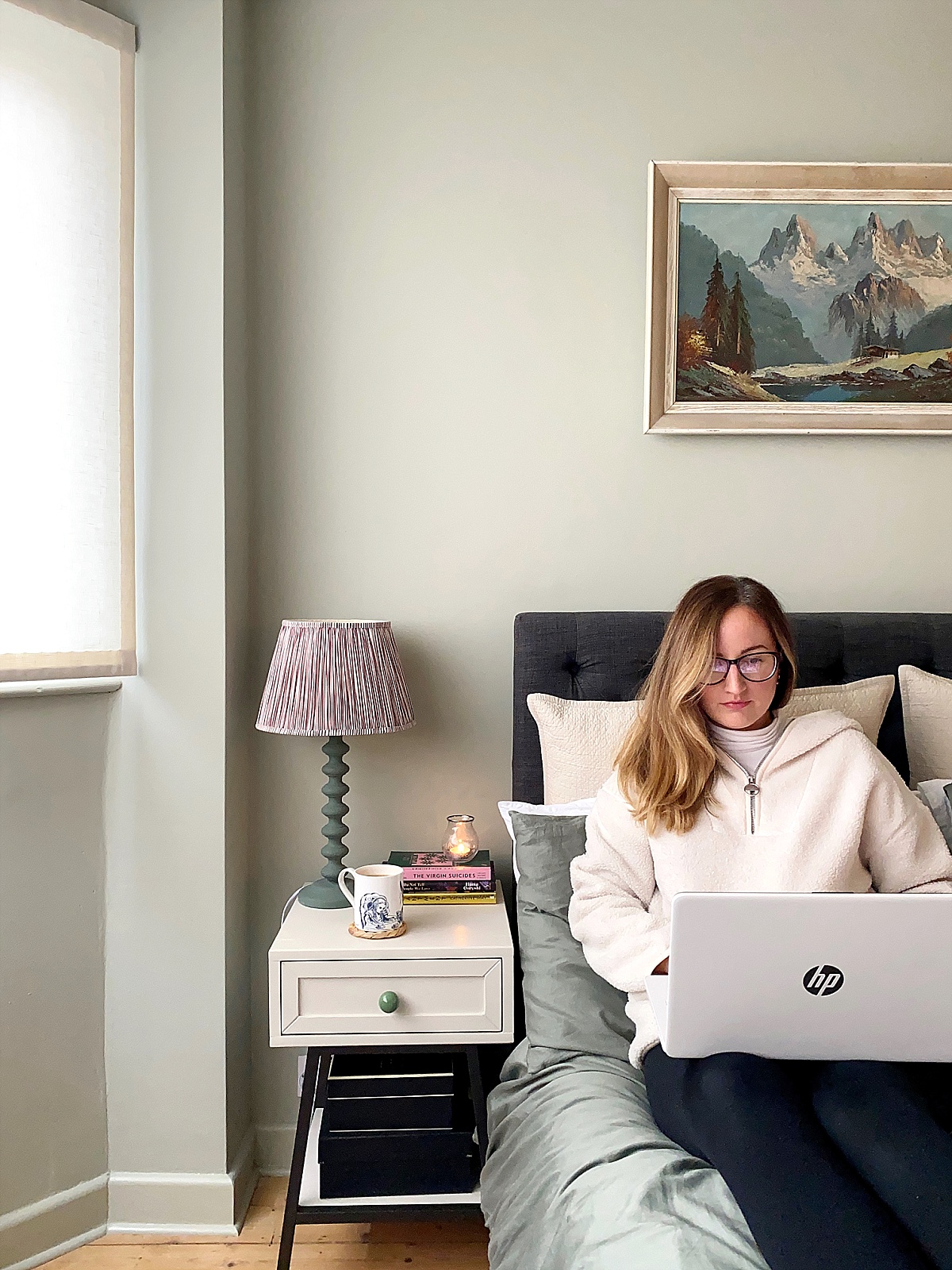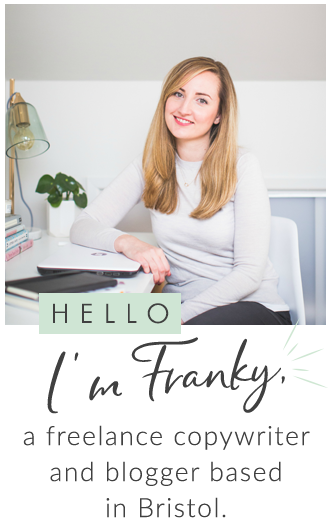At a recent networking event, I bumped into a fellow small business owner I hadn’t seen in a while. During our conversation, they mentioned they’d received a chronic illness diagnosis since the last time we spoke. After listening to them describe some of the challenges they were experiencing, I explained why I had some sense of what they were going through. I’ve been living and working with Chronic Fatigue Syndrome {CFS}, sometimes called Myalgic Encephalomyeltitis {ME}, since 2016. In 2023, I was also diagnosed with endometriosis and adenomyosis.
Visibly shocked, they asked me how I managed to run my copywriting business with a chronic illness. The question threw me. It’s been a while since I’ve thought about it in any detail. How do I do it? This is my attempt to explain.
Before we dive in, I want to be very clear about something. None of this is easy. If it ever seems like it is, you’re not seeing the full picture. I can’t sugarcoat my experience – navigating life with CFS is one of the hardest things I’ve ever had to do. If you’ve arrived here because you’re going through something similar, I get it. It feels difficult because it is difficult.
How I Run My Copywriting Business with a Chronic Illness
-
I Am Open About My Health Issues
I know quite a few chronically ill and/or disabled business owners who do not feel able to disclose their conditions publicly because they’re afraid it will deter people from working with them. I also remember feeling exactly the same way.
In the end, it took me around six months to share what I was going through with my health online. Now, I can’t imagine hiding such a big part of my life.
I don’t know if it puts potential clients off, but I do know I wouldn’t want to work with them anyway if it did! If anything, being open about the impact of CFS on my daily life has helped me attract clients in the same boat. If they’re not navigating health issues of their own, they work with people who are or share similar values around prioritising your health and wellbeing while also running a profitable business.
Showing up authentically is important to me and having to hide my health issues would be exhausting. I also want other chronically ill and disabled people to see someone like me doing what I do. I’m not trying to be anyone’s role model or inspiration – I just know how powerful it can be to see what’s possible when things feel tough.
-
I Reject Hustle Culture
I don’t want to be booked and busy – I want to be booked and operating at a pace that supports my health. I want a schedule that leaves room for rest, a working day that includes regular breaks, and a life that includes annual leave without the need to check my emails. I refuse to wear exhaustion and burnout like a badge of honour and commit to working gently but efficiently for clients who share my values.
-
I’ve Built Boundaries and Buffers into My Business
On a practical level, it’s the boundaries and buffers I’ve built into my business that make it possible for me to work while managing a chronic illness.
I have strict working hours because downtime isn’t just ‘nice to have’, it’s essential for me to function. I also give myself more time than I need to complete larger projects. Rather than pushing myself to meet tight deadlines, I choose to work at a steady pace, communicating with clients and managing their expectations throughout. This not only protects my health, but it also gives me some leeway in case my symptoms flare and I need an unexpected day off. Through trial and error, I’ve learned what my capacity is, and I rarely exceed it. It is this that dictates my schedule, not my availability or demand for my services.
These are just a few examples tailored to suit my needs. What you need might be different. Don’t be afraid to enforce boundaries and create buffers that support your health, even if it means your business looks nothing like anybody else’s. Ultimately, what works best for you will work best for your clients.
-
I Define Success On My Own Terms
I realised a long time ago that to feel proud of what I’m doing in my business I’d have to define success on my own terms. Rather than conforming to societal expectations or external benchmarks, I focus on things like creative fulfilment and whether I’m building a life that truly aligns with my values.
Right now, I feel successful when a client trusts me to be the voice of their brand. When they use copy I’ve written to reach their dream clients. I feel successful when I receive enquiries for projects that are challenging – projects that allow me to use the full breadth of my knowledge and expertise. I feel successful when I’m able to enjoy a long lunchbreak midweek or finish early on a Friday, just because. I feel successful when I get to call writing things like this ‘work’.
On paper, my copywriting career probably isn’t that impressive. My business isn’t making six-figures, and I’ve never had a £10K month. But I care more about how my business feels on the inside than what it looks like on the outside.
-
Being Freelance = The Freedom to Work
At this point, I’ve been chronically ill for most of my career as a freelance copywriter. Although in some ways my health is better than it was when I was first diagnosed, it’s unlikely I could manage a traditional job.
It would be very difficult for me to work outside of the home, and even if I found a suitable remote position I’d still need masses of flexibility and a very understanding, compassionate boss. The way I’ve had to build and shape my business serves as a reminder that many traditional workplaces, and the expectations they embody, aren’t accessible.
Did you know disabled people are almost twice as likely to be unemployed as non-disabled people, and 3 times as likely to be economically inactive {source}? I feel very lucky to have founded my business before I fell ill. I don’t know what I’d be doing now, or how I’d be supporting myself financially, if I hadn’t had a strong foundation from which to grow and evolve my business while also tending to my health. Like I said, it hasn’t always been easy, but I believe it’s made me a better business owner overall.
Perhaps the biggest lesson I’ve learned is that we shouldn’t wait until we get sick to operate in a way that supports our health and wellbeing. As the saying goes, if you don’t make time for your health, eventually you’ll be forced to make time for illness.
Love Audrey xxx










